Having a home inspection is crucial for both homeowners and potential buyers alike. Home inspection services provide valuable information about the condition of the property and help uncover potential issues, and a home inspector plays a huge role in that. They uncover deficiencies and defects to further document their findings in a comprehensive report along with offering home inspection advice wherever needed. This report serves as a roadmap for addressing maintenance needs and potential concerns. So, there are certain questions that you must ask your home inspector. Here are the top four questions of utmost vitality.

What areas will be covered in the inspection?
When conducting a home inspection, a licensed home inspector examines the following areas covered in the process:
Structural Integrity Assessment
This involves comprehensively examining the property’s foundation, walls, ceilings, and floors using industry-standard techniques and equipment. Any signs of structural damage or compromised load-bearing elements are documented in the report.
Exterior Evaluation
The exterior of the property is inspected for signs of wear and tear. This includes the condition of siding materials, exterior doors, windows, and drainage systems. Additionally, landscaping concerns that could impact the property’s structural integrity or drainage patterns are also carefully assessed.
Roofing Inspection
Inspectors evaluate the roofing system, materials, flashings, and penetrations. They employ specialized tools and techniques to identify areas of concern, such as missing or damaged shingles and improper installation practices.
Ventilation System Analysis
Adequate ventilation is essential for maintaining indoor air quality and preventing moisture-related issues. The functionality and efficiency of ventilation systems, attic ventilation, and exhaust fans are evaluated to ensure proper airflow and moisture control throughout the property.
Electrical System Review
The electrical system is inspected for compliance with local housing/building codes and safety standards. This includes inspecting wires, outlets, switches, and the main electrical panel to identify potential hazards, for instance, improper grounding or outdated components.

Plumbing System Examination
Home Inspectors assess the plumbing system for leaks, corrosion, and functionality issues. They evaluate water pressure, drainage systems, and the condition of pipes, fixtures, and water heaters to ensure optimal performance and water efficiency.
Insulation Analysis
Insulation levels in walls, ceilings, floors, and attics are analyzed to determine their effectiveness in maintaining thermal comfort and energy efficiency. They use thermal imaging technology and other diagnostic tools to identify areas of inadequate insulation or thermal bridging.
HVAC System Inspection
Heating, ventilation, and air conditioning (HVAC) systems are evaluated for proper operation, efficiency, and safety. This includes a detailed assessment of heating and cooling equipment, ductwork, filters, thermostats, and combustion appliances to identify potential issues or safety hazards.
Termite and Pest Inspection
A full examination is conducted for the presence of wood-destroying insects such as termites, beetles, and ants. Home inspectors identify signs of infestation and assess the extent of damage. They then recommend appropriate treatment measures to mitigate future pest-related risks.
Radon Gas Testing
Radon gas levels are measured using testing equipment following established protocols. Inspectors evaluate potential entry points and ventilation pathways to determine the concentration of radon gas within the property. They also provide clients with actionable recommendations to mitigate exposure risks.
What are the major issues or defects found during the inspection?
- Electrical hazards, exposed wiring, or overloaded circuits.
- Structural issues like cracks in the foundation or walls.
- Fire hazards, improper ventilation, or faulty heating systems.
- Plumbing leaks or issues with water heaters that could cause water damage or scalding.
- Presence of hazardous materials like asbestos or lead-based paint.
- Unsafe conditions related to stairs, handrails, or balconies.
- Malfunctioning smoke detectors or carbon monoxide detectors.
- Accessibility issues for individuals with disabilities, such as narrow doorways or steep staircases.
- Improperly installed or maintained gas appliances could lead to carbon monoxide poisoning.
Are there any maintenance tips or recommendations?
- Check for drafts around windows and doors and seal any gaps with caulk or weatherstripping.
- Schedule yearly maintenance for your HVAC system to keep it running efficiently and avoid breakdowns.
- Check your smoke detectors and carbon monoxide alarms monthly and replace batteries.
- Look for missing shingles or signs of damage on your roof, and fix any issues.
- Trim branches that hang over your roof or touch your house to prevent damage during storms.
- Look for leaks in your plumbing and insulate exposed pipes to prevent freezing in winter.
- Have your chimney and fireplace checked annually to prevent fires and ensure proper ventilation.
- Regularly remove leaves and debris from gutters and downspouts to prevent clogging and water damage.
- Make sure your sump pump and backup systems are working correctly, especially before rainy seasons, to avoid basement flooding.
Can you explain the report in layman’s terms?
A home inspection report is a document prepared by a Certified home inspector after evaluating a house’s condition. It consists of the below-written information:
Overview
The report starts with basic information about the property, including its address, the inspection date, and the inspector’s name.
Summary of Findings
This section gives a brief overview of the key findings from the inspection. It highlights any major issues or concerns that need attention.
Description of Areas Inspected
It breaks down the different areas of the house that were inspected: the exterior, interior, roof, plumbing, electrical, HVAC (heating, ventilation, and air conditioning), and structural components.
Detailed Findings
Provides detailed descriptions of any problems or issues discovered for each area inspected. This could include leaks, cracks, faulty wiring, plumbing issues, or signs of damage.
Photographs and Documentation
Many home inspection reports include photographs to illustrate the findings. This helps homeowners better understand the issues identified during the inspection.
Recommendations and Repairs
Based on the findings, the report may include repair recommendations or further evaluation by specialists. The inspector might suggest immediate repairs for safety concerns or maintenance tasks to prevent future problems.
Safety Concerns
It will highlight any safety hazards identified during the inspection that could pose a risk to occupants.
Estimated Costs
The report might include home inspection prices and the potential costs of addressing certain issues. Homeowners can use this information to budget for repairs or negotiate with the seller.
Additional Information
It consists of additional information about the property, such as maintenance tips or suggestions for improving energy efficiency.
Conclusion
Getting advice from a home inspector is important for both homeowners and potential buyers or sellers. Certified home inspectors help check everything to ensure your home is safe, secure, and worth living on and for investment purposes.
Get peace of mind with TnL Home Inspection, one of the premier home inspectors in Plano! Book now for a thorough evaluation of your property.


